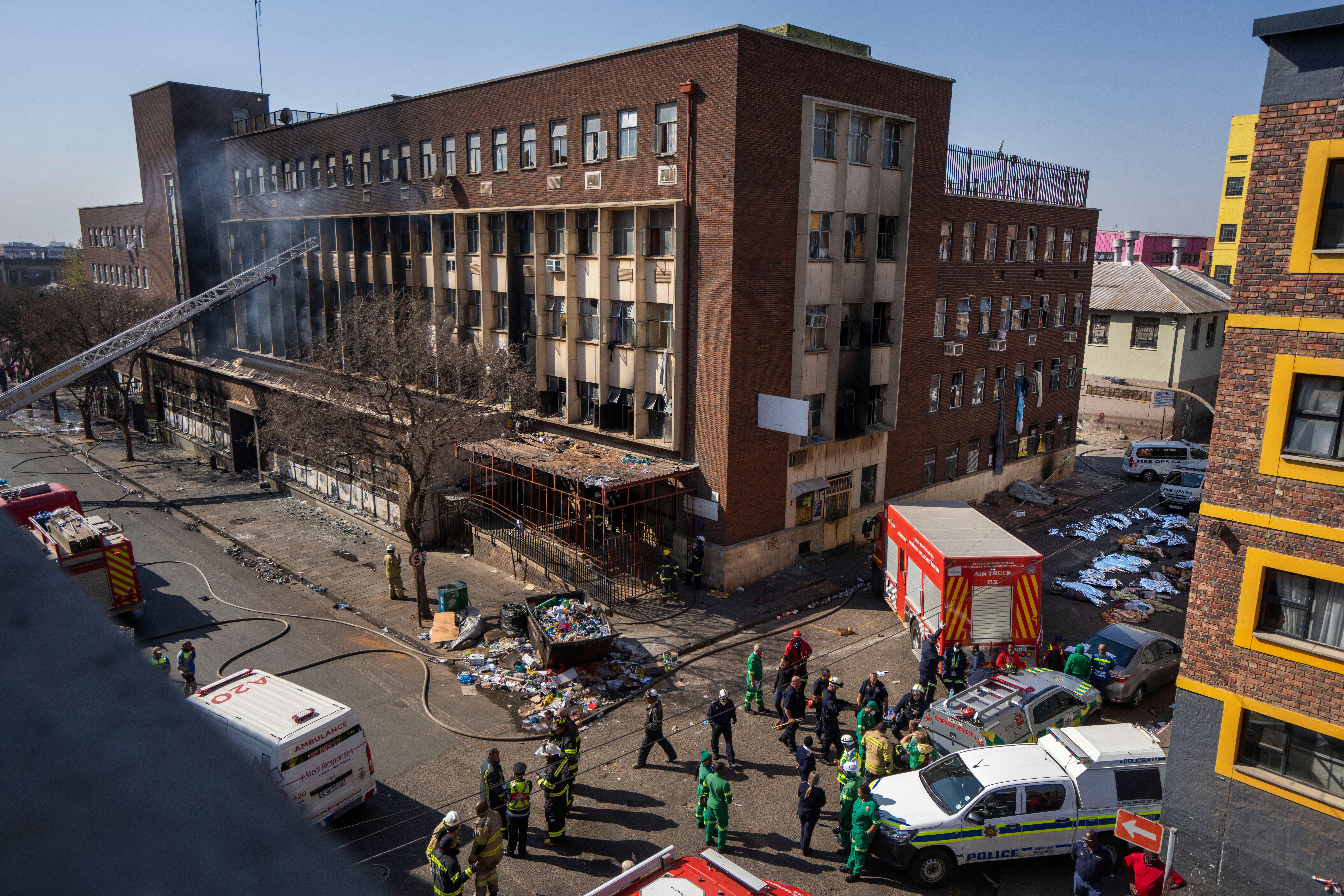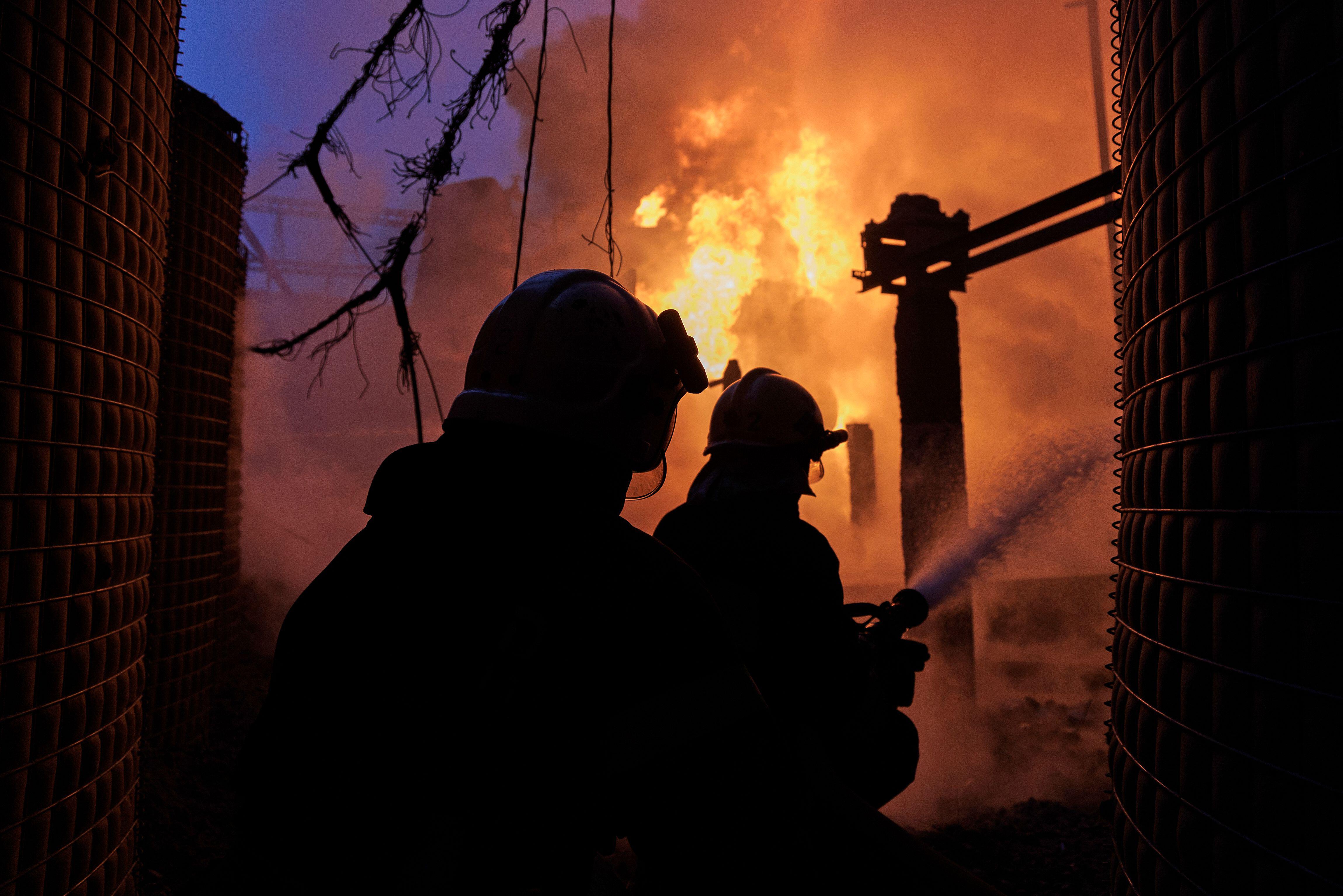Pope Francis prayed for the victims of last Friday’s “vile terrorist attack” on a concert hall in Moscow after the Sunday Angelus.
“May the Lord receive them in his peace and comfort their families. May he convert the hearts of those who plan, organise, and carry out these inhuman actions, which offend God, who commanded, ‘You shall not kill,’” he said, before appealing again for “martyred Ukraine” and for peace in Gaza and elsewhere.
He particularly prayed for those suffering from electricity outages following sustained Russian strikes on Ukraine’s power infrastructure.
The Islamic State group claimed responsibility for the Crocus City Hall attack, although President Vladimir Putin attempted to link the terrorists to Ukraine – a claim emphatically rejected by President Volodymyr Zelenskiy who called Putin “scum” for making it while his own “terrorists” attacked Ukrainians.
On 24 March, 15 Catholic, Orthodox and Evangelical leaders in the US issued a joint statement condemning Russian strikes against Ukraine’s power infrastructure as “war crimes” targeting civilians.
They appealed to the US government “to utilise all available just means to protect Ukraine and its people from this brutal aggression”. The signatories were headed by the Archbishop for the Military Service Timothy Broglio, president of the US Conference of Catholic Bishops.
Another of the signatories, Archbishop Borys Gudziak of Philadelphia, the senior Ukrainian Catholic prelate in the US, said last week that Pope Francis “has difficulty understanding who the world is dealing with” in President Putin.
Speaking in the wake of the Pope’s controversial appeal in an interview, published on 9 March, for Ukraine to show “the courage of the white flag” and negotiate with Russia, Gudziak told the National Catholic Reporter that the remarks were “very problematic”. Talk of negotiations was “a no-go” for Ukrainians, he said.
In his own response to the Pope’s words on 18 March, the head of the Ukrainian Greek Catholic Church Major Archbishop Sviatoslav Shevchuk blamed “the insidious manipulation of a dishonest journalist” for introducing the idea to the Pope, whose “human limitations” he said should not discourage Catholics.
“We are Catholics, faithful to the Eastern Catholic Church, not because Francis is the Pope, but because it was on the Rock of Peter that Christ founded his Church,” he said.
In another message on 24 March, Archbishop Shevchuk said: “Russia does not consider Ukraine a subject of dialogue, and even more so, denies Ukraine’s right to exist.”
He refuted “accusations against Ukraine that it seems to be refusing negotiations”, demanding: “Is dialogue between Russia, an aggressor country, a terrorist country, and Ukraine at all possible? And if not, then what stands in his way?”
The Pope’s words coloured all subsequent Church statements during the early weeks of the third year of the Russian invasion.
On 15 March, the Scandinavian bishops’ conference issued a statement citing its expression of “outrage at [Russia’s] war of aggression” in March 2022.
“Two years on, our outrage is undiminished, sharpened by grief at the many lives lost, at the multitudes maimed or driven from their homes, at the trauma sustained by children, and at the systematic destruction of a national, cultural and religious patrimony.”
Noting threats to Scandinavian security from recent Russian deployments, the bishops called for “a long-term vision for European stability that can enable the flourishing of peace in lasting justice”.
The Archbishop of Bologna Cardinal Matteo Zuppi, who has visited Kyiv and Moscow as the Pope’s peace envoy, said Europe was enduring “a very long Good Friday” and demanded instead “a new framework, a different paradigm, involving the international community to find a just and secure peace together with the parties involved”.
Speaking in his capacity as president of the Italian bishops’ conference at the spring meeting of its permanent council on 18 March, Zuppi said: “We cannot resign ourselves to an uncontrolled increase in weapons, much less to war as a path to peace.”
The Vatican was last week forced to deny Russian reports that Pope Francis had accepted an invitation from the Russian ambassador to the Holy See to visit Moscow in June.
A spokesman said this “does not correspond to the truth”, having previously also denied reports from Russia that the Pope had sent his congratulations to President Putin following his processional victory in elections on 17 March.
However, the secretary-general of Russia’s Roman Catholic bishops’ conference confirmed that they would “follow tradition” by praying for the country on Putin’s inauguration day.
Fr Stephan Lipke SJ said the Church in Russia was concerned about the growing hostility with Western countries. “It’s important for us to maintain good relations with Catholics everywhere in the world, and especially with Rome – the harder this becomes, the more difficulties we experience,” he said.
He said that before the election, the bishops had encouraged Catholics to vote and to “remember their civic duty, guided entirely by their conscience”.
Patriarch Kirill of Moscow, the head of the Russian Orthodox Church, hailed Putin’s victory as an expression of confidence in his “tireless work for the Fatherland”. He said Orthodox leaders would work with the government to maintain “traditional moral values, spiritual enlightenment and patriotic education”.
Reports from some polling stations said many voters declared their intention to spoil their ballot, with “Pope Francis” a popular alternative vote along with “Alexei Navalny”, appeals for peace in Ukraine and scatological drawings.



 Loading ...
Loading ...